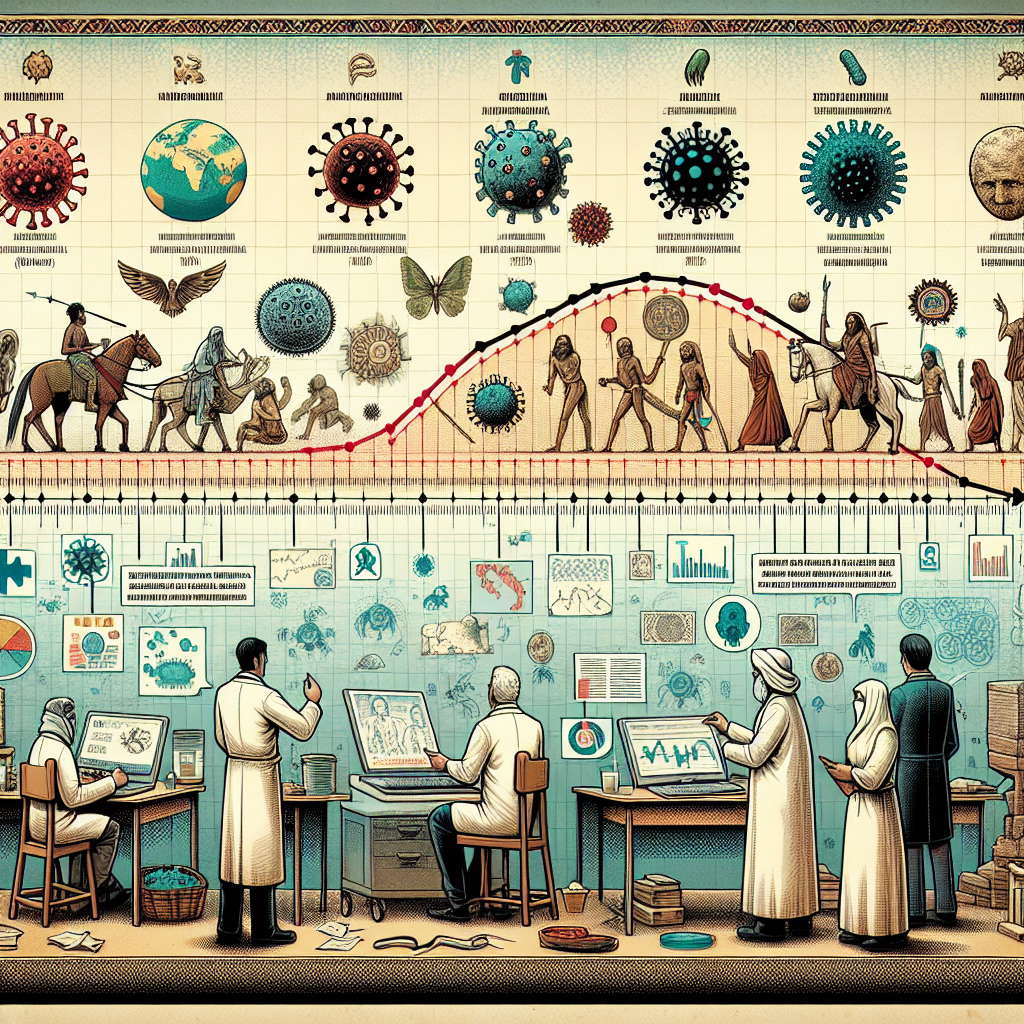Historical pandemics caused by bacteria and viruses have profoundly shaped human societies, influencing everything from public health policy to cultural practices. As we navigate the complexities of modern healthcare, understanding the impact of these past events can provide critical insights into our present challenges. The shadow of previous outbreaks often looms large, reminding us of the fragility of our health systems and the interconnectedness of our global community. By examining these historical events, we can not only draw lessons but also uncover strategies that may help us mitigate the effects of future pandemics.
The Role of Bacterial Pandemics in Shaping Societies
Bacterial pandemics have historically forced societies to confront their limitations in public health infrastructure and medical knowledge. The Black Death in the 14th century, caused by the bacterium Yersinia pestis, devastated Europe, killing an estimated one-third of the population. Its aftermath prompted a reevaluation of medical practices, leading to the establishment of quarantine measures and the birth of modern public health policies. This transformative period illustrated how a health crisis could catalyze sweeping social and economic changes, paving the way for the Renaissance and altering the course of European history.
The introduction of germ theory in the 19th century further revolutionized our understanding of infectious diseases, emphasizing the need for sanitation and hygiene. Bacterial pandemics like cholera outbreaks in the 19th century pushed governments to invest in clean drinking water and sewage systems, essentially laying the groundwork for contemporary urban planning and public health regulations. These initiatives marked a shift towards a more proactive approach in combating infectious diseases, as societies learned that careful management of public health could significantly reduce mortality.
Moreover, the societal impacts of bacterial pandemics extended into cultural realms, influencing art, literature, and religion. The pervasive fear of disease led to themes of mortality and human suffering in artistic expressions, while religious interpretations often viewed pandemics as divine punishment. Over time, these cultural phenomena not only reflected the realities of living through pandemics but also helped shape societal resilience in the face of adversity, reinforcing communal bonds and collective identity. Understanding these dynamics reveals how deeply intertwined our cultural fabric is with health crises and underscores the enduring influence of historical pandemics on our contemporary world.
Viral Outbreaks: Lessons Learned from Historical Events
Viral outbreaks, characterized by their rapid spread and often severe consequences, have imparted critical lessons that still resonate today. The 1918 influenza pandemic, for instance, infected one-third of the global population and resulted in millions of deaths. This outbreak highlighted the importance of timely public health communication and the need for transparency in reporting cases. The failure to act decisively in the early stages of the pandemic allowed the virus to spread unchecked, emphasizing that early intervention is key in managing viral threats and protecting public health.
The emergence of HIV/AIDS in the late 20th century showcased the importance of understanding transmission dynamics and addressing social stigma. As the virus disproportionately affected marginalized communities, the response required a multifaceted approach that included education, advocacy, and the development of treatment options. The lessons drawn from this epidemic have influenced how we approach subsequent viral outbreaks, including COVID-19, emphasizing the necessity of inclusive, community-driven responses to health crises.
Recent viral pandemics have also underscored the significance of global collaboration and information sharing. The World Health Organization’s role in coordinating international responses to outbreaks such as SARS, MERS, and COVID-19 illustrates how interconnected our world has become. Lessons learned about the importance of rapid research and vaccine development have driven innovations in public health strategies, such as the use of mRNA technology for vaccine production. These advancements not only reflect a significant leap in medical science but also demonstrate how historical viral outbreaks can inspire revolutionary approaches to future health challenges.
Examining historical pandemics caused by bacteria and viruses reveals a complex interplay of societal transformation, public health evolution, and cultural adaptation. As we face ongoing and emerging health threats, the experiences of our predecessors serve as a crucial guide. By embracing the lessons learned from past pandemics, we can better prepare for and respond to future outbreaks. Engaging in discussions about these historical events and their implications can empower individuals and communities to advocate for robust health systems and promote resilience in the face of adversity. The journey of understanding extends beyond mere reflection; it is a call to action for informed engagement in public health and a reminder of the collective responsibility we share in safeguarding our future.
Essential Strategies for Preventing Viral Infections EffectivelyEssential Strategies for Preventing Bacterial InfectionsUnderstanding the Mechanisms of Virus and Bacteria TransmissionRelevant LinkRelevant LinkRelevant LinkUnderstanding Lower Back Pain Linked to COVID-19: Insights and ManagementUnderstanding COVID-19: Navigating Loss of Appetite ChallengesUnderstanding COVID Laryngitis: Symptoms, Causes, and TreatmentRelevant LinkRelevant LinkRelevant Link

